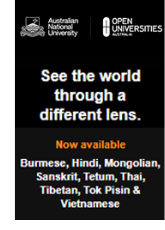Effective development policy requires measuring intangible outcomes, and policymakers can promote and build on best practice by investing in the evaluation ecosystem, Shangpo Hsieh writes.
Since the creation of the 17 Sustainable Development Goals (SDGs) in 2015, there has been a renewed push to achieve a range of global development objectives, including eliminating poverty, addressing gender inequality, and promoting environmental sustainability. A plethora of new initiatives have taken shape in the years since, but efforts to measure the outcomes of these activities remain insufficient.
The challenge is that some of the desired outcomes of development programs, such as increased happiness, are intangible. While traditional businesses rely on measures like return on investment to evaluate their work, financial return isn’t necessarily an adequate or appropriate marker of success in development project.
While impact measurement is no doubt a difficult task, this lack of quality data can have serious implications across the sector. Without consistent metrics that capture the true value of development projects, it can be difficult to make informed decisions about, for example, how to best allocate resources to ensure that this work is actually having a positive impact.
In response, there has been a push to create alternative evaluation frameworks. Examples such as ‘impact management norms’ and ‘social return on investment’ (SROI) are starting to grow in popularity, as they offer organisations a way to more fully evaluate the impact of their work.
In the Asia-Pacific region, Taiwan has been a leader in using these kinds of tools, driven by a small but vibrant community of practitioners and experts.
Taking the example of SROI, which was created by England-based registered charity Social Value International (SVI), Taiwan ranks first in the region for the number of assured reports produced.
In this assurance process, SVI examines whether analysis reports applicants submitted comply with SROI’s eight principles: understand what changes, value the things that matter, only include what is material, do not over-claim, be transparent, verify the result, and be responsive.
As of October 2022, the number of assured SROI reports in Taiwan reached 36. Of these, 20 were impact assessment cases for projects carried out by listed companies, 11 were for non-profit organisations, and four were concerned with government initiatives.
However, for this kind of impact measurement to thrive, a larger ecosystem of human, financial, and intellectual capital needs to exist, and this is where Taiwanese policymakers can provide support.
One step the government could take is to fund industry-focused academic research centres dedicated to impact measurement.
Evaluation is only useful to the extent that organisations actually use it to inform resource allocation and utilisation, so by supporting research to better understand how this work is being applied, policymakers can support and build upon best practice in this area.
Governments could also reward organisations that conduct impact assessments by publicly encouraging these practices or even with tax relief.
Furthermore, governments can set an example by introducing broader impact measurement and management to their own projects.
A s one of the most advanced economies in the Asia-Pacific region, Taiwan is well equipped to cultivate impact measurement as an area of expertise. There is an opportunity now to capitalise on the work that has already been done and use it as a strong foundation to expand its use nationally.
s one of the most advanced economies in the Asia-Pacific region, Taiwan is well equipped to cultivate impact measurement as an area of expertise. There is an opportunity now to capitalise on the work that has already been done and use it as a strong foundation to expand its use nationally.
In doing so, Taiwan can ensure it is truly meeting its own development targets and provide support to others in the region to do the same.





 Parliament's power of banishment
Parliament's power of banishment
 Getting on track to net zero
Getting on track to net zero